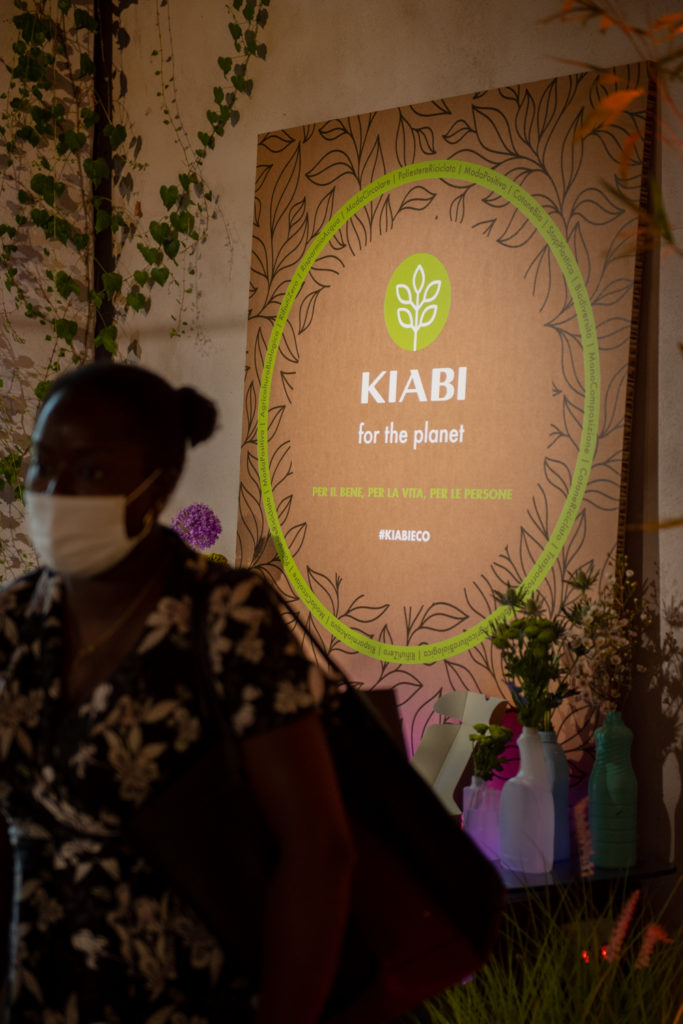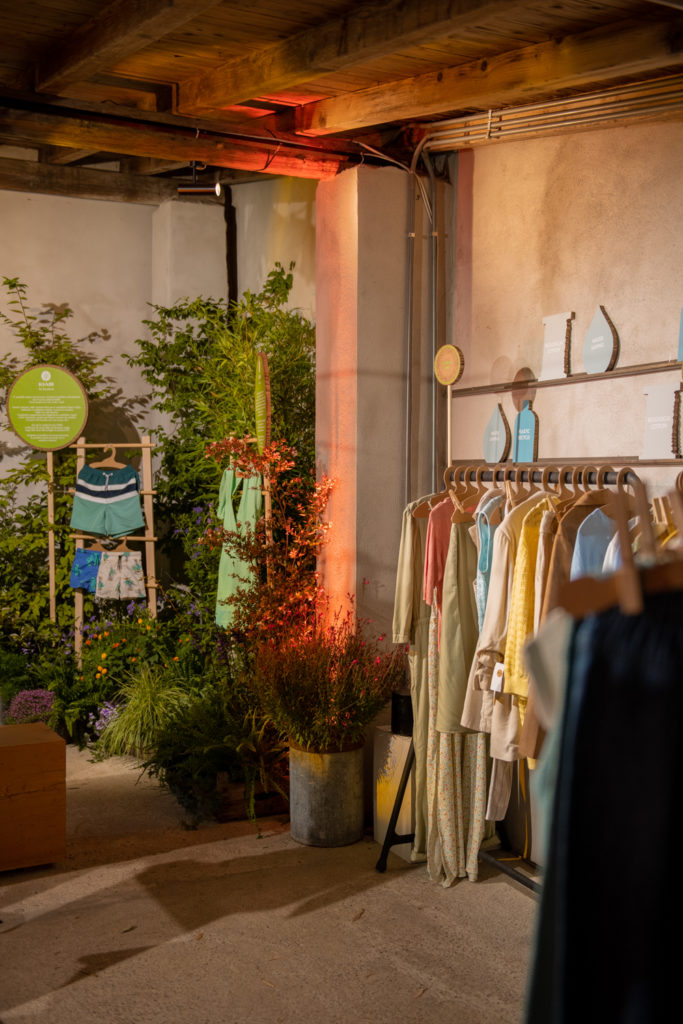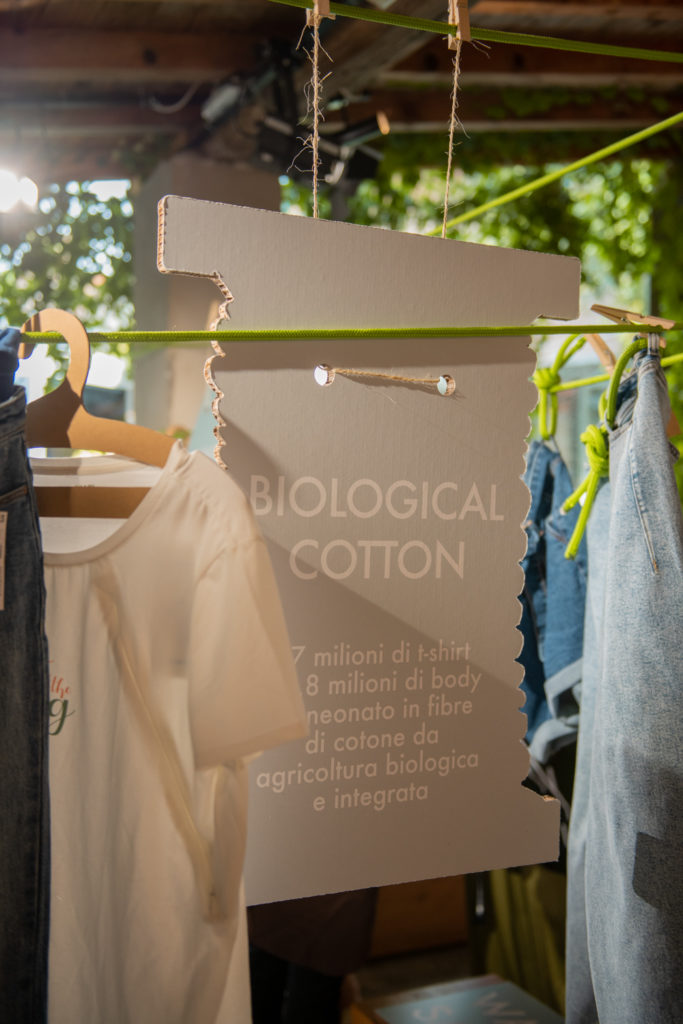How can fast-fashion be virtuous?
From environmental friendliness to people to the second hand.
Motelombroso – Milan, July 8, 2021 –
With the pandemic there has been a strong return to the most relevant values, aspects and assets of brands. Consumers are demanding greater proximity from signs, which must be a point of reference, through targeted actions with the right ‘tone of voice’. With this in mind, it is crucial to be able to respond to new market demands with sustainable and credible strategies, taking into account the criticality of a period that has been influencing the general scenario and communication strategies for so long now. KIABI has always carried out its mission to revolutionize fast fashion through the concept of fashion at small prices for the whole family, making a wide and versatile offer for all budgets, styles and morphologies.
The French fashion brand landed in the Italian market twenty-five years ago with the opening of its first store in Milan. Today the brand boasts 33 stores in the territory and is the leading e-retailer in the online clothing market in terms of sales volume. Cross-channel is one of its strong points. The synergy of “physical” stores and e-commerce is a winner, so much so that today the brand boasts more than 200 million visits per year on KIABI.COM.
The collections are designed in France by a team of more than 200 designers, pattern makers and product managers. The garments are made at factories working for the company under subcontract in 21 countries, mostly in Asia. The organization works with 137 suppliers in 400 factories chosen on the basis of well-rounded sustainability criteria: respect for human rights, working conditions, environmental protection, prevention of corruption, preventive audits, and annual inspections. To offer small prices all year round, KIABI acts on the different stages of product manufacturing. Each component is studied in detail to optimize the overall cost while minimizing material waste.
In such an era of transformation as the one we find ourselves in, KIABI, also as a signatory of the FASHION PACT (a pact that has initiated a project to protect the environment, with the aim of promoting more responsible behavior on the part of consumers and producers and fighting the fight against climate change), represents a real point of reference, also as a leading player in such compartments as kids, baby, maternity and plus-size.
Sustainability is now a key element, running across the company’s entire business plan: it has evolved from being a value to becoming an essential part of the DNA.
KIABI sets great goals to reduce its impact on the environment.To achieve an eco-designed product, it is necessary to optimize the stages that lead to the creation of the finished product. KIABI is an active part of its supply chain and intervenes in the selection of raw materials, the manufacturing process, the logistics circuit, and the distribution network.
L’azienda sposta l’attenzione sul riutilizzare, aggiustare, rinnovare e riciclare i materiali e i prodotti esistenti, trasformando i “rifiuti” in risorse; il fine è quello di raggiungere il 100% di materiali sostenibili utilizzati per la produzione di indumenti e accessori tessili entro il 2025.
Twenty-two percent of KIABI’s 2020 purchases were made from materials derived from regenerative, wildlife-friendly cultivation. To date, 10 million denim pants have been produced using the eco-wash method (to consume less water, the stuff of life), 37 million T-shirts and 2.8 million baby bodysuits made from cotton fibers from organic and integrated farming, and still 1 million down jackets and coats made from polyester recycled from used PET plastic bottles.
80% of the baby collection will be environmentally sustainable by 2021, and for every baby voucher opened, both in-store and online, a tree will be planted. KIABI, alongside Reforest’ Action commits itself to an environmental and ethical mission that is good for our planet. The goal undertaken by the company is to plant 500,000 trees in 2021.
In 2020, eco cotton was the star of the KIABI collection landscape, more than 77 million garments were made with this innovative formula. The company also joined the “Better Cotton Initiative”, which has a dual purpose: to improve economic and living conditions in cotton-producing regions and to reduce the production impact on the environment. The garments in the collections are made of 100 percent organically grown cotton fiber, grown without GMO seeds but with natural compounds and more rational use of water, without pesticides or chemical fertilizers.
In clothing, 22 % of the fabric needed to produce a windbreaker is discarded before the garment is even sewn, transported and sold. Out of 100,000 pieces we are talking about the equivalent of the surface area of 78 Olympic swimming pools. For a sustainable response, KIABI, in collaboration with Mylene L’Orguillax, co-founder of ZWDO Collective, presented its Waste 0 Jacket made of recycled polyester and with a unisex pattern, it generates no fabric waste. The design is studied to the millimeter thanks to a pattern-making technique that creates garments from prototypes as perfect as the fits of a jigsaw puzzle. In 2021, plastic bags will be eliminated in all stores, and by 2025 the company aims to reduce plastic in all product packaging for customers.
A focus on logistics organization is also underway, the ultimate goal being to design, produce, and distribute affordable, supportive, and engaged fashion by reducing its carbon footprint along the entire value chain, from materials to logistics to warehouses. Thus, 1 truck ride around the world per week has been saved through the creation of new Southern Warehouse for the Southern European region, and in 2021 KIABI aims to reduce air freight to 6.1% to impact the planet less.
More attention was also paid to textile disposal and recycling, a global problem of enormous impact, by focusing on the Second Hand project. KIABI France started 2 customization workshops to adapt, extend the life of garments at stores in Cormontreuil and Merignac; it also launched 6 second-hand corners in the stores themselves. The goal for 2021 is to provide 25 second-hand corners in France, Italy, Spain and Belgium. The x-canal model allows customers easy access to the service both from the web and in stores. Customers can resell their clothing of any brand and buy second-hand clothing online. Tomorrow’s KIABI store will be “hybrid,” a real place to live, a protagonist of a virtuous economy.
KIABI‘s commitment continues, the large company present in 17 countries with 463 stores is always ready to welcome and face new challenges!
KIABI Group 2020 data:
REVENUE €1.692 BILLION
More than 25 million clients worldwide
+2.4% increase
330 stores in France
133 overseas stores
463 total stores
42 years of experience in the fashion field
REVENUE 180 mln € approx. in the worldwide web
226 million visits per year to kiabi.com
More than 5.8 million fans on social media
8.000 dipendenti nel mondo, di cui 580 in Italia
200 employees at the Style office, headed by Alexander Pesty
KIABI PILLS
In 1978, in northern France, KIABI revolutionized fast fashion through the concept of fashion at small prices for the whole family, creating a wide and versatile offer designed for all budgets, styles, and morphologies. 40 years later, the small French brand part of the AFM (Association Familiar Mulliez) group that also owns Decathlon, Auchan and Leroy Merlin, among others, is now an international group present in 17 countries, with more than 25 million customers and 1.692 billion euros in sales, reached in 2020.



